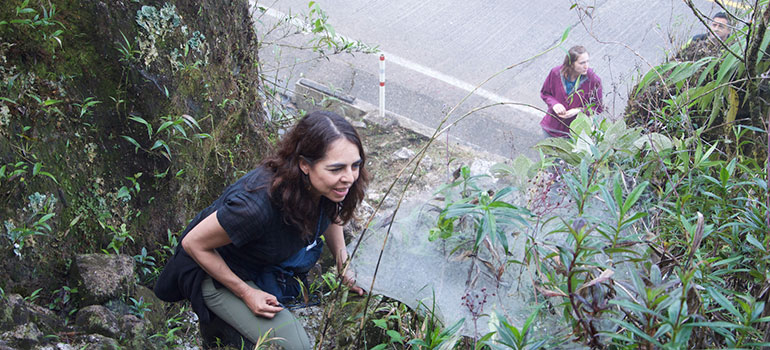It Takes a Village: Spider Parents Gain Support from Colonies

Cobweb spiders go against the arachnid norm when it comes to helping parents raise their young, researchers have found.
Though it is rare for spiders to live in groups, a new study found that some spiders support each other's offspring through communal living.
Spider parents in the genus Anelosimus, which build silk-intensive webs, typically care for offspring on their own. But in the new study of such Anelosimus spiders, researchers found that harsh environmental conditions, such as heavy rainfall, could damage those webs. The result? The spiders joined forces and lived in large colonies to support the little ones. [Weird and Wonderful: 9 Bizarre Spiders]
The researchers studied two spider habitats in Ecuador. In the milder conditions of high-elevation habitats, the spiders lived in small colonies with family members. However, in the lowland rainforest, the colonies would contain hundreds to thousands of spiders from different families.
"The spiders make dense webs that require a lot of silk," Leticia Avilés, a senior author of the study and a professor of zoology at the University of British Columbia, said in a statement. "When the webs get damaged by strong rains, or colonies are attacked by predators, some spiders can protect their offspring while others go and make the repairs."
Only some animals living in groups will work together to raise each other's offspring, making the spiders' protection of nonrelative offspring rare, according to the researchers. Avilés said one other example is penguins huddling together to survive the extreme cold of Antarctic winters.
Avilés and colleagues also tested the spiders' adaptability. They took spiders from the single-family colonies at the higher-elevation site and introduced them to the larger rainforest colonies. The introduced spiders integrated into the cooperative living, helping to protect the colony, the researchers observed.
Sign up for the Live Science daily newsletter now
Get the world’s most fascinating discoveries delivered straight to your inbox.
"By living in groups, the spiders can occupy spaces that they wouldn't otherwise be able to, thus helping us understand why animals evolve to be social species," Avilés said.
The research was detailed in a study published online Feb. 15 in the journal Behavioral Ecology.
Original article on Live Science.











